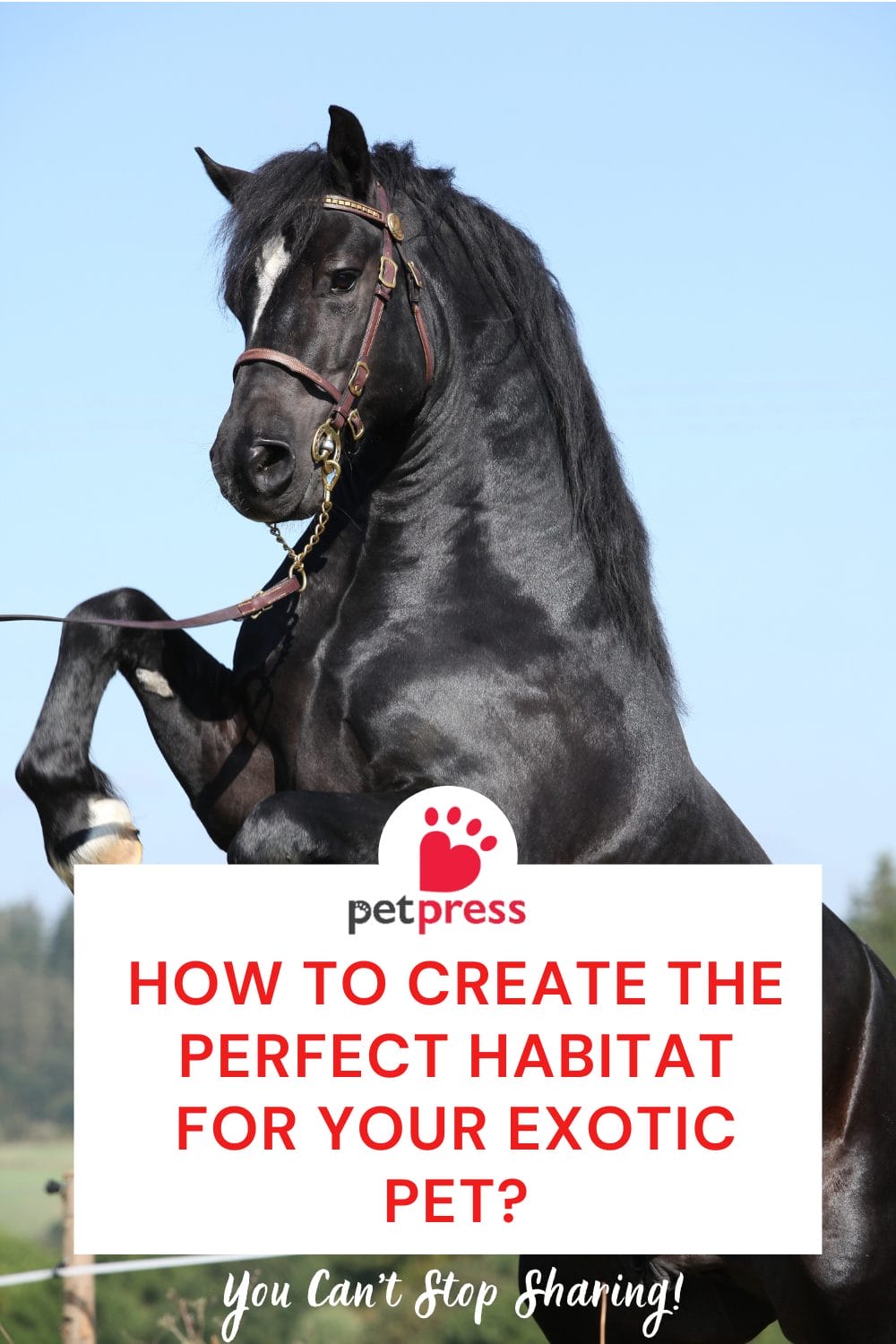
Horses are highly sensitive animals, deeply attuned to their environment and the emotions of those around them.
Their horse nervous system is wired for survival, making them quick to react to potential threats. However, sometimes, without realizing it, owners contribute to their horse’s anxiety.
If your horse seems jittery, uncooperative, or overly reactive, it may be experiencing horse anxiety. The good news?
Once you understand the signs and causes, you can take steps to build trust and create a calmer, more relaxed relationship with your horse.
In this article, we’ll discuss the signs of horse anxiety symptoms, why horses become anxious, and most importantly, how to help an anxious horse feel safe and secure.
What are the Signs of Horse Anxiousness?
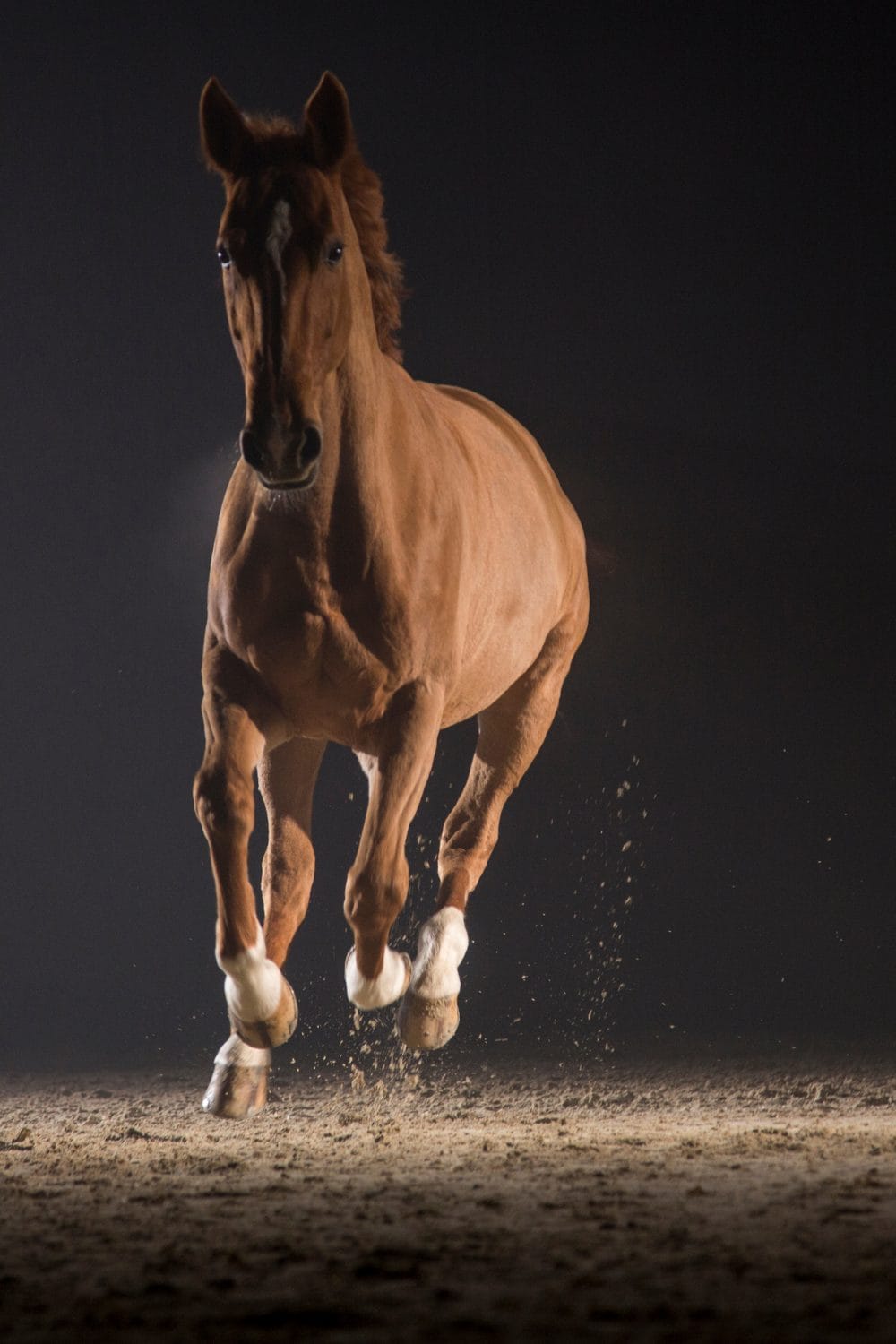
Horses express anxiety in various ways. Recognizing these behaviors early can prevent stress from escalating into dangerous reactions. Here are the most common horse anxiety symptoms:
Restlessness and Fidgeting
Anxiety may be the culprit if your horse constantly shifts weight, paws the ground, or moves nervously in the stall or under the saddle.
Excessive Spooking
A relaxed horse may occasionally react to sudden movements, but an anxious horse is excessively jumpy, even in familiar environments.
Sweating Without Exercise
Unexplained sweating, especially around the neck and flanks, can be a sign of stress.
Pinned Ears and Tense Body
A stiff posture, clenched jaw, and pinned-back ears often indicate discomfort or fear.
Difficulty Focusing or Learning
An anxious horse struggles to pay attention, making training sessions frustrating for both horse and rider.
Bolting or Rearing
Extreme anxiety can cause dangerous behaviors like bolting (running away suddenly) or rearing (standing on hind legs).
Separation Anxiety
Some horses panic when separated from their stablemates, displaying excessive neighing, pacing, or trying to break free. Horse separation anxiety treatment is crucial for managing this behavior.
Loss of Appetite
A stressed horse may refuse food, even its favorite treats. Finding the best feed for anxious horses can help.
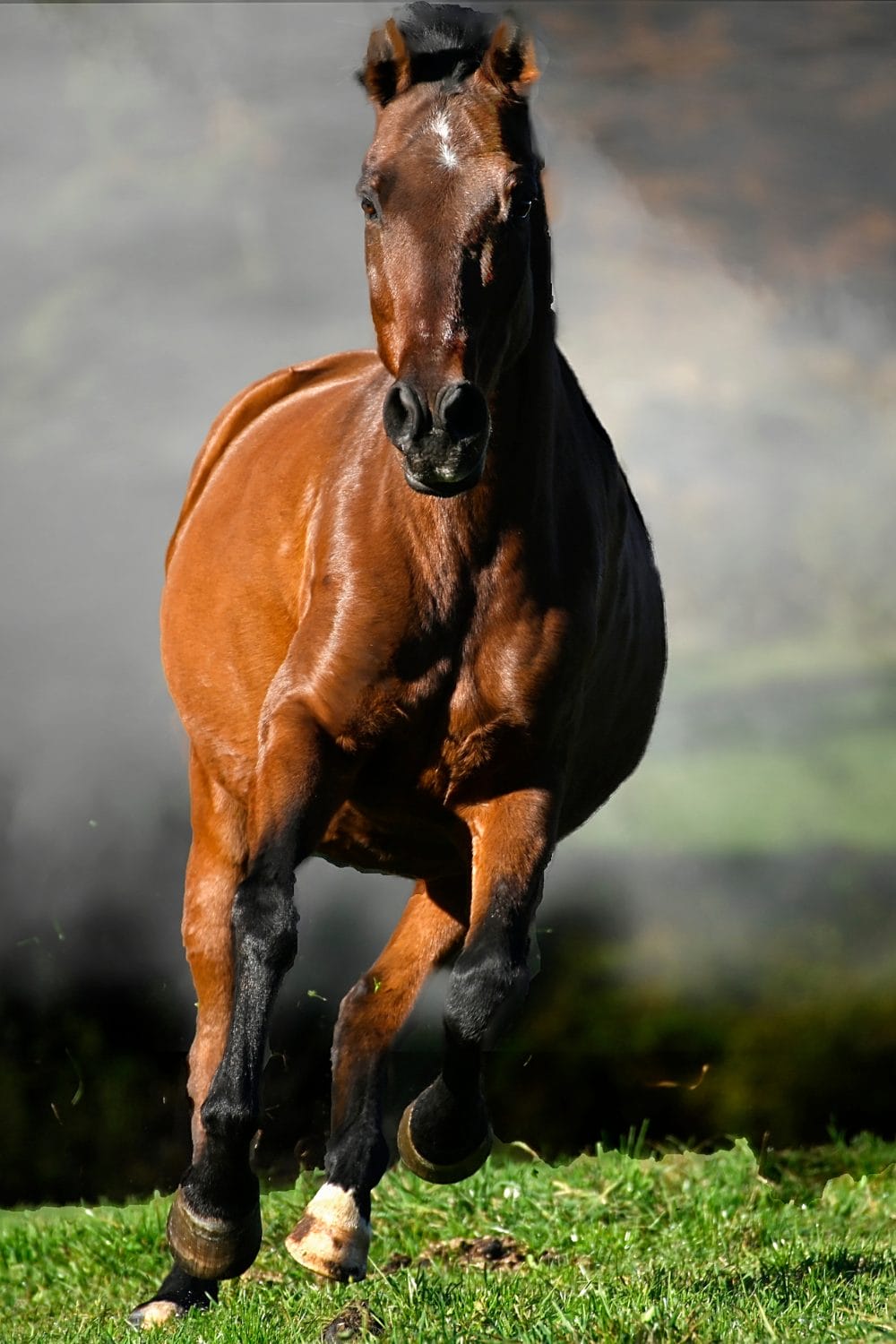
Why Horses Become Anxious
Understanding why horses develop anxiety is key to addressing the root cause. Here are the most common triggers:
Past Trauma or Poor Training
A history of abuse, harsh training methods, or unpredictable handling can create long-term anxiety in horses.
Owner’s Nervous Energy
Horses pick up on human emotions. If you’re tense, frustrated, or fearful, your horse will mirror those feelings.
Sudden Environmental Changes
New barns, unfamiliar riding trails, loud noises, or changes in routine can unsettle a horse.
Lack of Socialization
Horses are herd animals. Isolation or lack of interaction with other horses can trigger horse anxiety symptoms.
Poor Diet and Nutrition
Diet affects behavior. Feeding excessive sugar or lacking key nutrients can make a horse more reactive. The best feed for anxious horses includes balanced fiber, low sugar, and calming supplements.
Discomfort or Medical Issues
Pain from poorly fitted tack, hoof problems, or digestive issues can make a horse nervous. A veterinary check is essential.
Overstimulation or Lack of Exercise
Some horses need regular physical and mental engagement. Boredom can lead to nervous habits like cribbing or weaving.
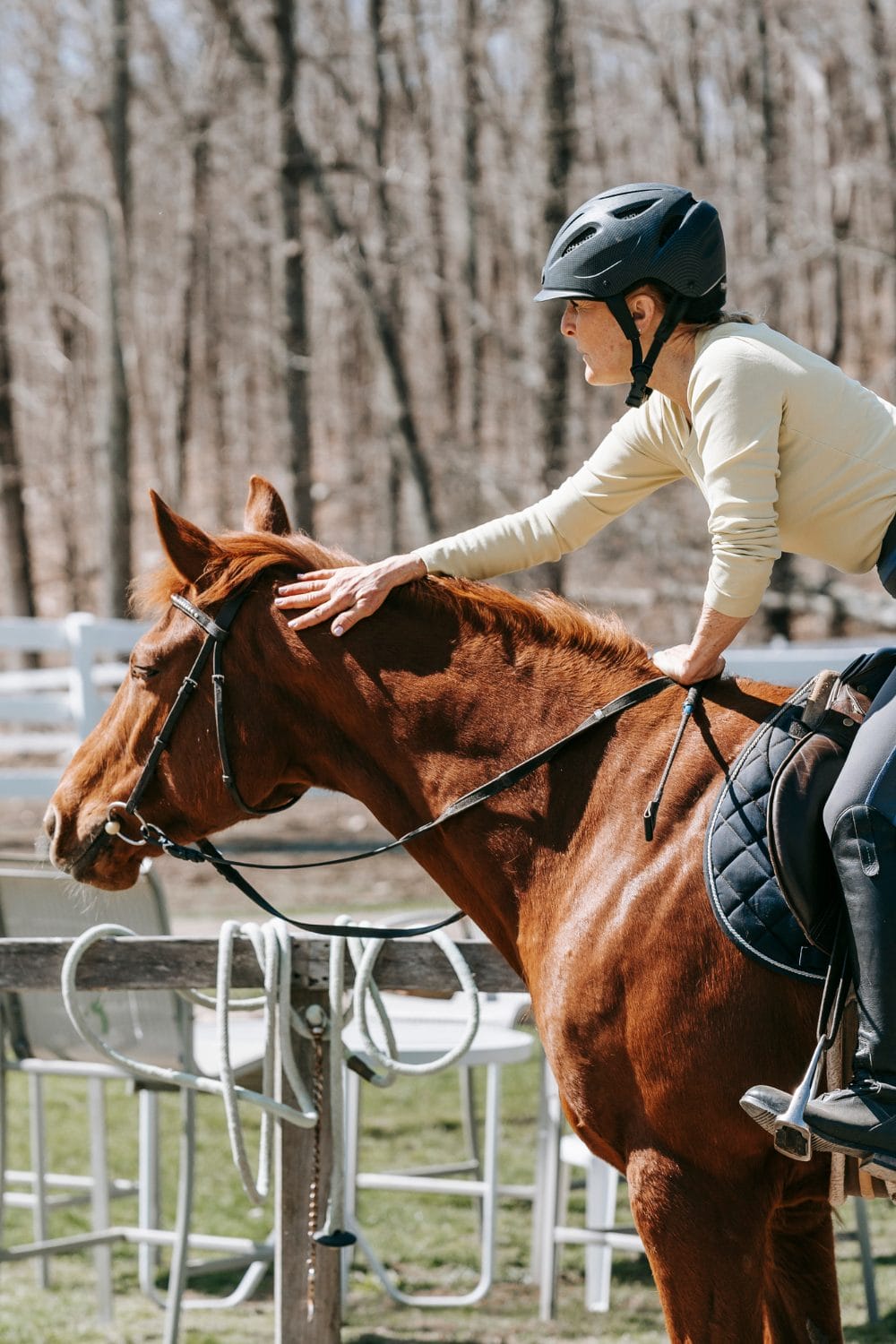
How to Help an Anxious Horse
If you’re wondering how to help an anxious horse, here are key strategies:
Stay Calm and Confident
Your energy directly affects your horse. Speak in a soothing voice and maintain steady movements.
Establish a Routine
Predictability reduces anxiety. Keep feeding, turnout, and riding times consistent.
Use Groundwork Training
Gentle groundwork exercises build trust and reinforce good behavior. Desensitization techniques can also help an anxious horse adjust to new environments.
Provide a Safe Space
Ensure your horse has a secure stall, paddock, or pasture where it feels comfortable.
Address Separation Anxiety
For horses struggling with horse separation anxiety treatment, gradually increase the time they spend alone to build independence.
Improve Diet with Calming Feeds
Choose the best feed for anxious horses, focusing on fiber-rich, low-starch diets with calming herbs like chamomile or magnesium supplements.
Consider a Supplement for Anxious Horses
Natural supplement for anxious horses, such as magnesium, valerian root, or L-tryptophan, can promote relaxation. Always consult a vet before adding new supplements.
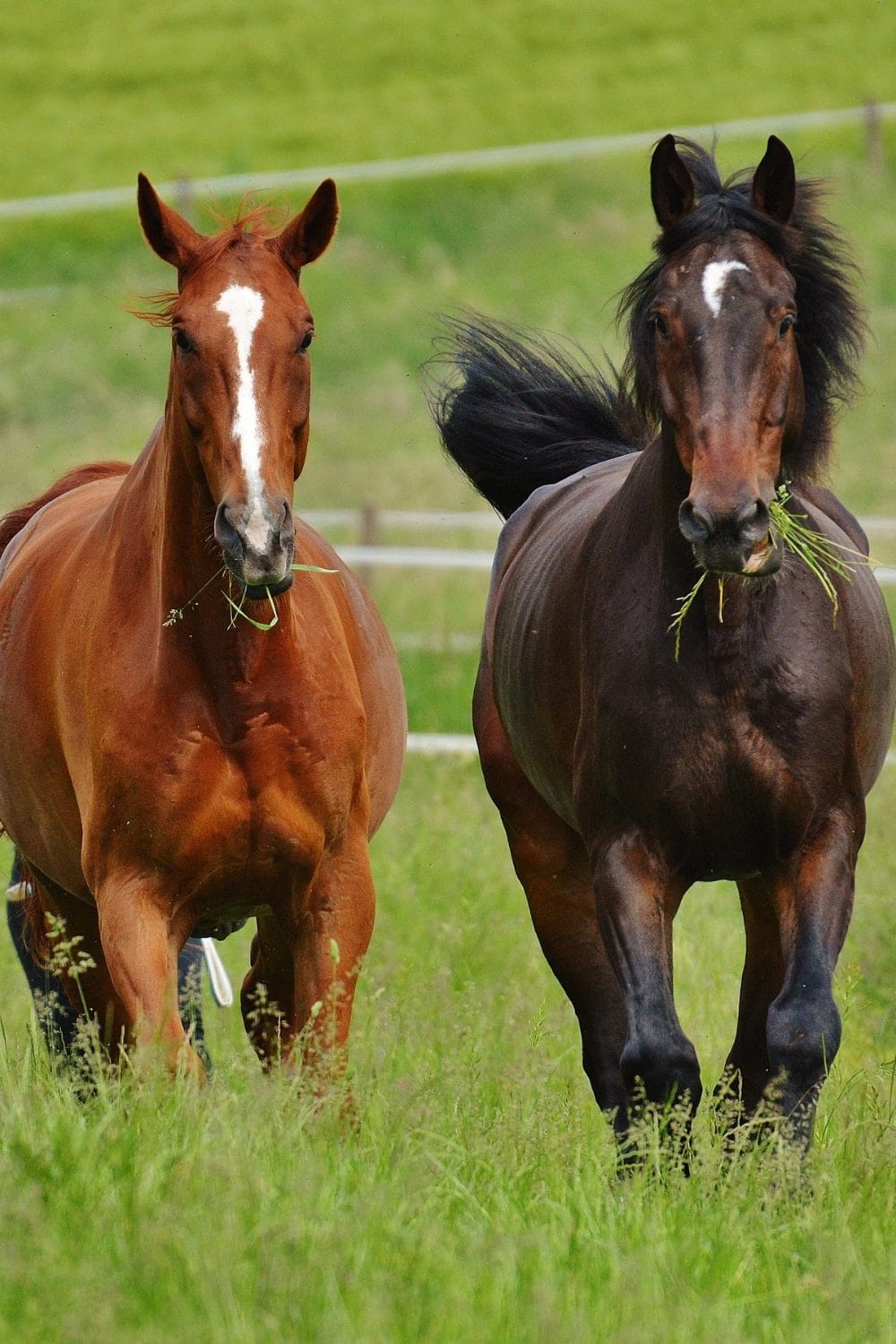
Tips to Strengthen Your Relationship with Your Horse
Building trust with your horse reduces anxiety and creates a stronger bond. Here’s how:
Spend Time Together Without Expectations
Grooming, hand-grazing, and simply sitting near your horse can strengthen your bond.
Learn Your Horse’s Body Language
Understanding your horse’s signals helps you respond appropriately to its needs.
Use Positive Reinforcement
Reward calm behavior with treats, praise, or gentle strokes. Avoid punishment, as it increases anxiety.
Practice Slow, Gentle Handling
Move predictably and avoid sudden gestures. A calm presence reassures a nervous horse.
Build Confidence Through Exposure
Gradually expose your horse to new objects, sounds, and experiences in a controlled manner.
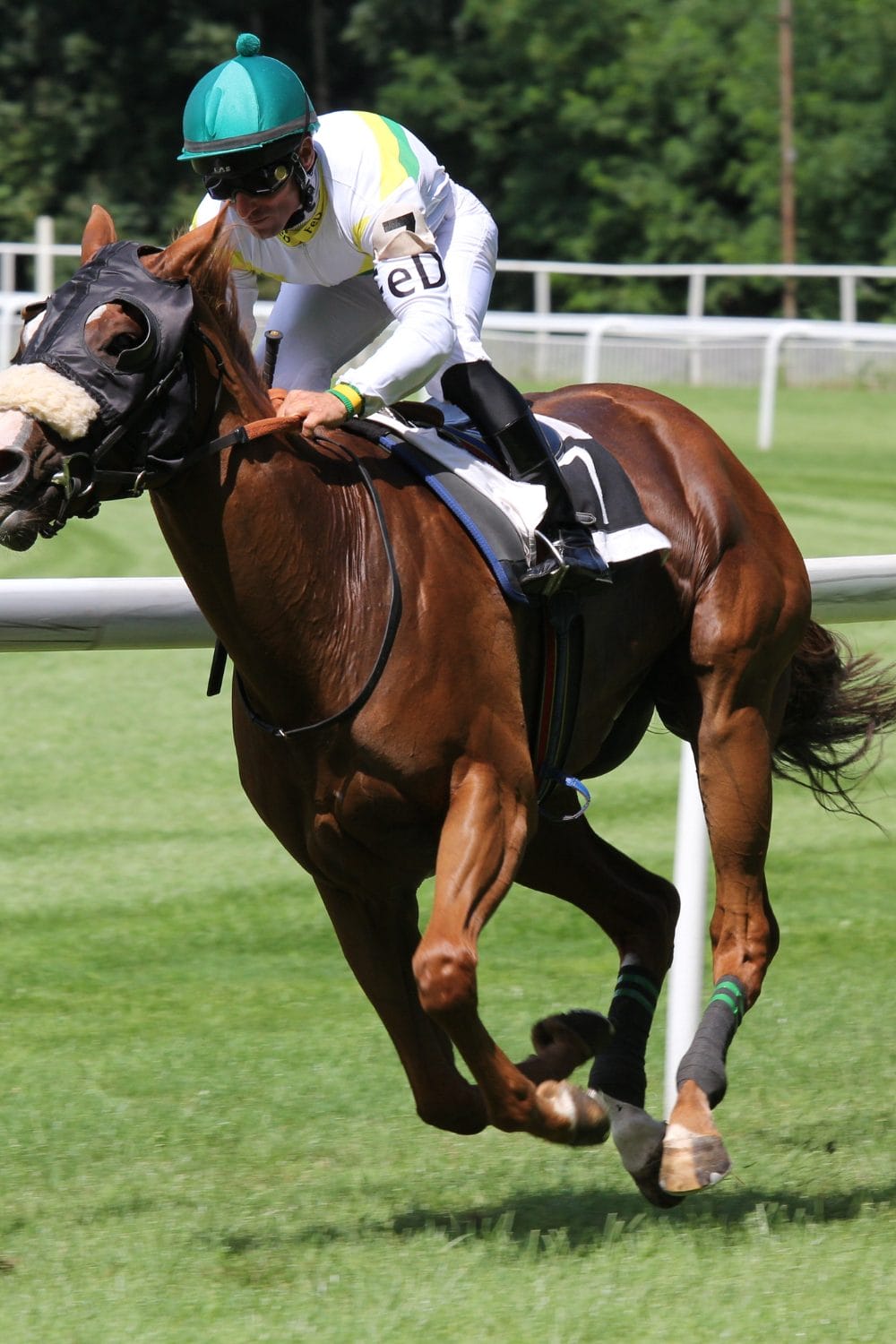
Conclusion
If your horse is anxious, it’s crucial to recognize the signs early and take proactive steps.
Anxiety in horses can stem from past trauma, poor diet, lack of socialization, or even the handler’s emotions.
By providing a safe, structured environment, using proper training techniques, and considering horse anxiety treatments, you can help your horse feel more secure and confident.
A calm, trusting horse leads to a more enjoyable riding experience and a stronger human-equine bond. Remember, patience and consistency are key in overcoming horse anxiety!
FAQs
To calm an anxious horse, use steady handling, groundwork training, and calming supplements. Maintaining a consistent routine and feeding the best feed for anxious horses can also help.
Common horse anxiety symptoms include excessive spooking, restlessness, sweating without exercise, separation anxiety, and a tense posture.
A supplement for anxious horses should contain magnesium, tryptophan, chamomile, or valerian root. Always check with a vet before introducing new supplements.
For horse separation anxiety treatment, gradually increase the horse’s time alone, provide distractions like hay nets, and use a stable buddy to ease transitions.
Yes! The best feed for anxious horses is fibre-rich, low in starch, and includes calming ingredients. Sugary or processed feeds can increase nervousness.
- How to Celebrate a Dog’s First Birthday on a Budget: 2026 Guide - February 18, 2026
- Best Shampoo for Sensitive Skin Dog Grooming: 2026 Guide - February 12, 2026
- 40+ Aesthetic Names for White Dogs (2026 Unique & Rare List) - February 6, 2026


GIPHY App Key not set. Please check settings